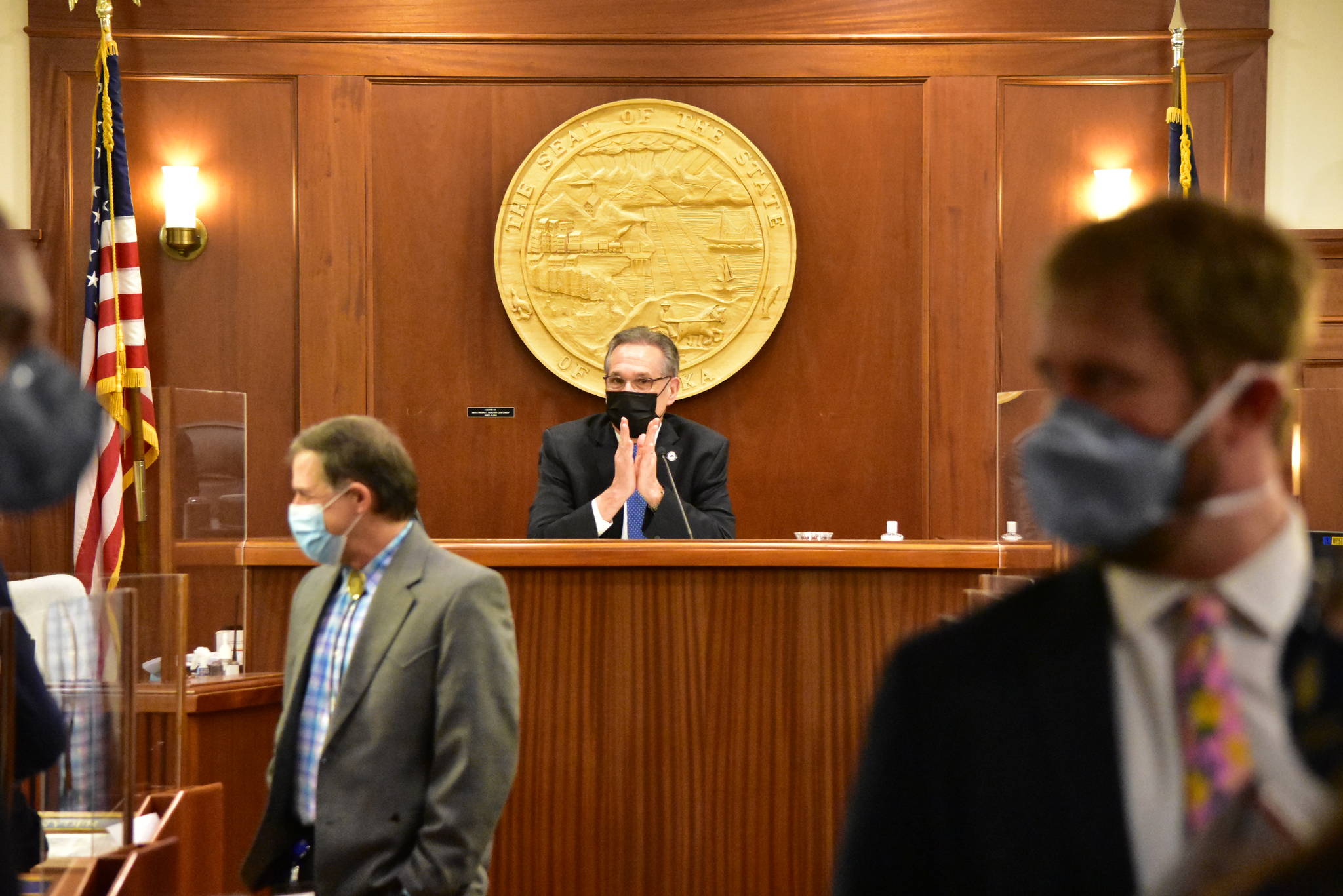For the third week in a row, the Alaska House of Representatives failed to organize a leadership, extending the deadlock until at least Tuesday morning when members meet again.
Rep. Bart LeBon, R-Fairbanks, nominated Rep. Laddie Shaw, R-Anchorage, for the temporary position of speaker pro tem of the House. That vote, like all the others in the House this session, ended in a 20-20 deadlock between Republicans and a coalition of Democrats, independents and one Republican.
Lt. Gov. Kevin Meyer is still presiding over the House until a temporary speaker is chosen.
As the deadlock in the House drags on Senators are wasting no time in getting to their side of legislative work with multiple committee meetings taking place daily.
The Senate Finance Committee is scheduled to meet every day at 9 a.m. this week to get a better picture of the state’s revenues. Throughout the week that committee will hear presentations from Office of Management and Budget Director Neil Steininger, Legislative Finance Director Alexei Painter and on Thursday CEO of the Alaska Permanent Fund Corporation Angela Rodell.
The Senate held a technical session Monday morning, meaning only just enough lawmakers to set the body’s next meeting for Wednesday at 11 a.m. were present.
[Security or suppression? Bill would change how Alaskans vote]
But there’s only so long Senate work can continue before legislation needs to be passed over to the other body.
“Five weeks,” said state Sen. Jesse Kiehl, D-Juneau. “If they don’t have committee chairs and aren’t able to start flowing budget bills by the second week of March it’s going to be really tough to make things work.”
According to legislative rules, unless special exception is given bills have to be referred to committees and given a five-day notice before their first public hearing. Less time for committees to hear bills means fewer bills will actually make it to the floor for a vote, Kiehl said. The Legislature adjourned early last year when the coronavirus pandemic first hit, and lawmakers passed only a budget and other essential bills, meaning lawmakers will have their own bills from last session they’ll want to see move forward.
“A lot of legislators lost their personal bills (last year) and are not interested in losing the opportunity this year,” Kiehl said.
Members were still doing legislative work, Kiehl said, but were not able to do things like take public testimony on their bills. Still, the longer the House takes to organize, Kiehl said, the less time there will be for refinement and discussion of bills. Kiehl said he’s confident once the House is organized members will be able to get to legislative work.
“Once they get gavels in hands I think they’ll be ready to go like a rocket ship,” Kiehl said.
• Contact reporter Peter Segall at psegall@juneauempire.com. Follow him on Twitter at @SegallJnuEmpire.

